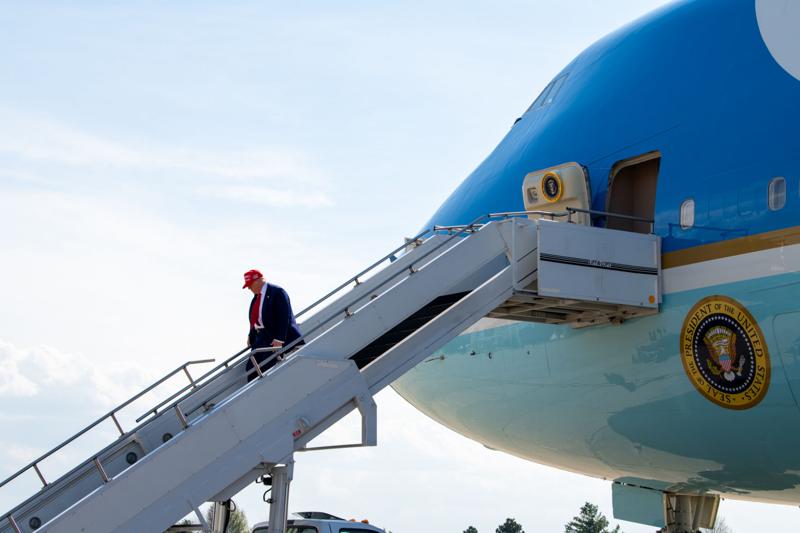The Congressional Budget Office estimated that President Donald Trump’s tariffs could reduce federal deficits by $2.8 trillion over the next decade.
The CBO estimate includes some crucial caveats and “significant uncertainty,” the research service noted in a letter. For example, the CBO projections assume the tariffs in place as of May 13 will remain in place for the next decade. Furthermore, the projections don’t include the trade framework deal reached between the U.S. and the United Kingdom.
The CBO also said it was out of practice regarding tariff revenue, especially considering that import duties could change consumer behavior.
“Because the United States has implemented no increases in tariffs of this size in many decades, there is little relevant empirical evidence on their effects,” the letter noted.
“On the one hand, tariff increases of this magnitude could induce consumers and businesses to change their behavior faster than anticipated, which would cause revenues to be lower than CBO projects,” the letter said. “On the other hand, most historical increases in tariffs have targeted goods for which consumers and businesses are particularly responsive to changes in prices.”
The uncertainty doesn’t stop there.
“Consumers and businesses may change their behavior less in response to less targeted tariffs. In that case, revenues would be higher than CBO projects,” according to the letter. “CBO will continue to assess how businesses and consumers respond to the tariff changes and will incorporate that information in future analyses.”
Trump has moved quickly with tariffs, sometimes announcing them and suspending them before they go into effect.
Trump has also questioned the accuracy of CBO projections, especially on his spending plan, which is under consideration in the U.S. Senate.
“Shockingly, the Democrat controlled CBO just announced that the Tariffs will be reducing the Deficit by at least $2.8 Trillion Dollars,” Trump wrote in a social media post on Thursday. “Too bad this information couldn’t have been released earlier, it would have kept people from knowingly saying untruths.”
The White House has also been critical of the CBO, calling it a partisan operation.
Marc Goldwein, with the Committee for a Responsible Federal Budget, said tariff revenue won’t cover the GOP’s spending plan, which includes about $4 trillion in tax cuts.
“No, the tariffs will not ‘pay for’ the One Big Beautiful Bill,” Goldwein wrote on X.
“When measured on a comparable basis and incorporating recent court rules, the current tariffs would only cover one-sixth of OBBBA’s costs,” according to a CFRB post. “Assuming recent court decisions are overturned, the tariffs would cover about one-half of OBBBA’s costs.”
That projection also had a caveat: “These estimates assume that the tariffs are not reversed or adjusted (and no exemptions are added) by the current Administration or future ones.”
The CBO projections also included another factor: A shrinking U.S. economy.
“CBO’s assessment is that the changes in tariffs will reduce the size of the U.S. economy. That effect would differ year by year; on average, from 2025 to 2035, the tariff changes would reduce the rate of real growth in gross domestic product (GDP) by 0.06 percentage points per year. By 2035, CBO estimates, the level of real GDP will be 0.6 percent lower than it was in CBO’s economic forecast from January 2025.”
Erica York, of the Tax Foundation, put it this way: “The attempt to do so will more than offset the economic growth of OBBB.”
On April 2, dubbed “Liberation Day” by the president, Trump announced reciprocal tariffs on scores of other nations, but suspended those higher rates for 90 days while his trade team went to work. Since then, Trump’s team has announced a limited trade deal with the United Kingdom and a tariff truce with China while talks continue.
Those “Liberation Day” tariffs face legal challenges from states and small businesses.
A three-judge panel on the U.S. Court of International Trade unanimously ruled last week that Congress did not give the president tariff authority under the International Emergency Economic Powers Act of 1977. The court gave Trump 10 days to unwind all the tariffs he issued under IEEPA. The administration appealed that decision and asked for an emergency stay. The appeals court granted that request, putting the Court of International Trade ruling on hold while the appeal continues.
Economists, businesses and some publicly traded companies have warned that tariffs could raise prices on a wide range of consumer products.
Trump has said he wants to use tariffs to restore manufacturing jobs lost to lower-wage countries in decades past, shift the tax burden away from U.S. families, and pay down the national debt.
A tariff is a tax on imported goods paid by the person or company that imports the goods. The importer can absorb the cost of the tariffs or try to pass the cost on to consumers through higher prices.






